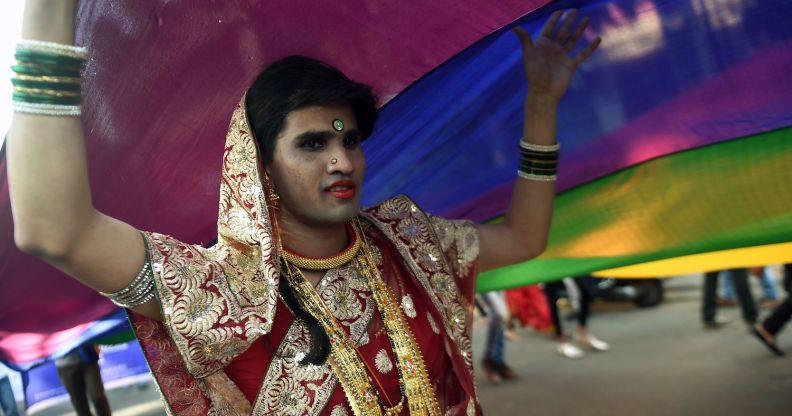Trans people are equal and can choose their own toilet, Indian government tells states

The Indian government has told its states to view trans people as equal, and allow them to use any public toilet they choose “without any embarrassment.”
Three years ago, the Indian Supreme Court granted ‘third gender’ status to trans people, and endorsed people’s right to determine the gender they identify with.
The verdict also included a directive for toilets to be allocated to trans people in public places, but most states have not implemented this rule.
The Ministry of Drinking Water and Sanitation issued guidelines earlier this week highlighting that “in many communities, the third-gender may often be dissociated from the mainstream.”

State authorities should therefore “make a conscious effort that they are recognised as equal citizens and users of toilets,” the letter continues.
“They should be allowed to use the facility of their choice (men or women) in community or public toilets.”
The government department also emphasised the important work done by trans people in improving sanitation in India.
“There are also examples from around the country, where people belonging to the third gender have come up as Swachhta (hygiene) champions and have played a huge role in taking the message of Swachhta to households in the community,” the letter read.
“Where suitable, their support can be enlisted in engaging communities, and their efforts duly recognised and honoured to break any stigma around them, and to also enable them to use facilities without any embarrassment.”
The letter to authorities also encouraged states to promote gender equality to its citizens, in order to – among other reasons – ensure women are not disproportionately made to clean family toilets.
Sangama, an Indian sexuality and gender NGO, told Reuters today that the government’s decision was a good start.

However, they added that the move needed to be backed by a strong education campaign to change attitudes toward the transgender community, which faces a lot of discrimination in India.
This is borne out by the statistics, which show that nearly half of all trans children are subjected to violence before they turn 18.
Figures released earlier this year also revealed that the great majority of trans people in the country are missing out on the electoral process because they do not have sufficient ID.
Just four percent of the trans community are enrolled in voter lists, according to the Election Commission of India’s statistics.

